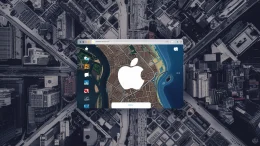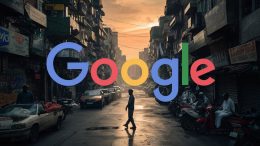Unless you were wealthy, the computers you were familiar with growing up were glorified typewriters. Today, computers can do it all: manage your finances, connect you with friends, suggest media for you, even monitor your home.
In between, you might’ve learned technology’s key lesson: Just because you can use it every minute of your life doesn’t mean you should. Although technology can help you build relationships, be more productive, and optimize your life, overusing it works against those goals.
The key, many tech thinkers argue, is a Goldilocks approach. If you want to take part in society, you can’t be a Luddite. At the same time, you can’t let technology dominate your life.
Not sure how to strike a good balance? Check out these books:
1. Indistractable by Nir Eyal
Following his Wall Street Journal bestseller, Hooked, former Stanford lecturer and behavioral designer Nir Eyal’s Indistractable is a field guide for training your attention on what matters. The centerpiece of Indistractable is a map that shows how external and internal triggers can create either distraction or traction — which Eyal defines as any action done with intent that moves you closer to your goals.
Eyal’s advice? Do away with the anti-tech rhetoric, and learn to fight distraction from within. Drawing from Greek mythology, psychology research, and Eyal’s own experience as a tech industry insider, Indistractable is as humorous as it is helpful and historically grounded.
2. Beat the Bots by Anita Nielsen
A sales consultant by trade, Anita Nielsen’s Beat the Bots is tailor-made for salespeople in the tech sector. Open her book, however, and you’ll see how relevant it is to everyone who works in a modern office. Through authenticity and empathy, she reminds readers to default to humanity rather than their digital devices.
Although most of the book’s best stories come from the sales trenches, Nielsen also draws from her Chicago home life and background in psychology. Futuristic but practical, Beat the Bots is a great choice for stressed-out sales professionals.
3. Essentialism by Greg McKeown
One of the greatest misconceptions around tech is that it makes you more productive. Greg McKeown, a Young Global Leader of the World Economic Forum, wrote Essentialism to explain how to accomplish more by doing less.
Although it’s not a book explicitly about technology, Essentialism tugs on its threads. McKeown helps readers reclaim their time, be deliberate about their device use, and fight the compulsion to accomplish everything.
4. Alone Together by Sherry Turkle
One of the most insidious consequences of tech overuse is loneliness. In Alone Together, Sherry Turkle, social studies and technology expert at the Massachusetts Institute of Technology, explores how tools meant to bring us closer together can actually create solitude.
But Turkle’s latest book isn’t a rant against tech. Drawing from hundreds of interviews with parents, children, and partners, Alone Together delivers hope by describing the ways tech users create human connections and protect their time.
5. The Inevitable by Kevin Kelly
In The Inevitable, Kevin Kelly, founding executive editor of WIRED, surveys 12 technological forces that he sees shaping the future. In showing how they overlap and depend on each other, he weaves a picture of how they’re changing the ways we communicate, work, and learn.
Kelly’s answer isn’t to abandon those forces; it’s to embrace them, both in life and in business. With optimism and foresight, The Inevitable gives readers a roadmap for rearranging their relationship with technology to adapt to the future Kelly sees.
6. Deviced! by Doreen Dodgen-Magee
Ask Deviced! psychologist Doreen Dodgen-Magee what the answer is to technological overuse is, and she’d say, “Intention.” After describing the admittedly dark ways that she sees technology changing users’ minds and relationships, Dodgen-Magee shares a five-part assessment exercise. Through it, she helps the reader understand tech’s emotional impacts and cultivate an internal locus of control.
Despite its exercises, Deviced! isn’t a self-help book. It’s a ruminative argument for the middle road: that we can learn to use technology in ways that benefit us, rather than stunt our interpersonal lives.
7. Tiny Habits by B.J. Fogg
Why isn’t putting down your phone before bed as routine as pulling up Google? In Tiny Habits, B.J. Fogg, director of Stanford University’s Persuasive Tech Lab, shares what he calls the Fogg Method. In a nutshell, the Fogg Method involves identifying small changes that create healthier habits.
Like Indistractable, Tiny Habits is highly applicable, but not limited, to our relationship with tech. Deeply researched yet accessible, Tiny Habits shows how behavioral change is less about willpower and more about appreciating our successes.
What unites the books on this list is the recognition that we can’t simply stop using technology. At work and within our homes, we use digital tools everyday. As these authors suggest, we might as well make the most of them.

















